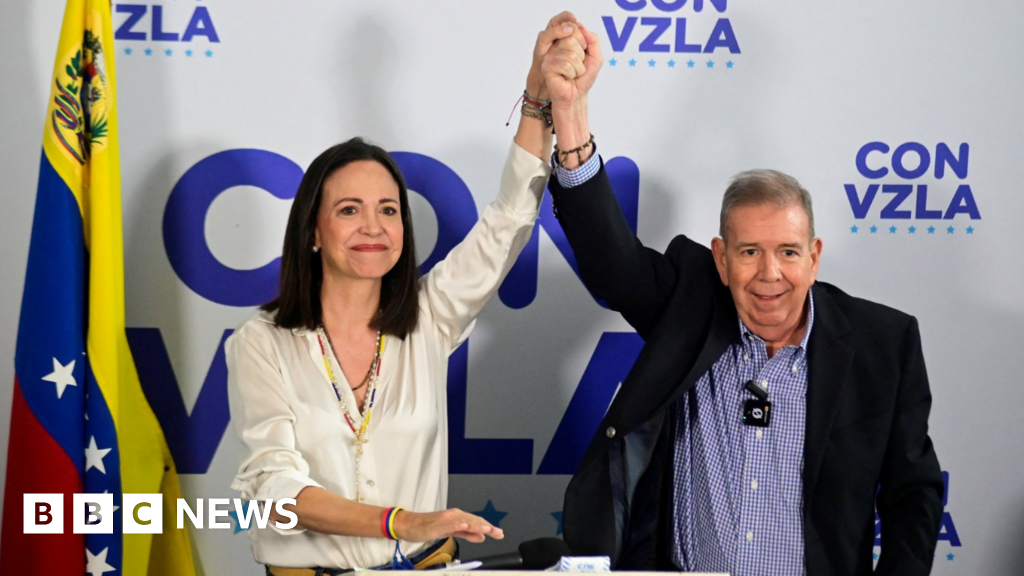…
His intervention comes as the presidents of Brazil, Mexico and Colombia all called on Venezuela to release the full details of last Sunday’s election.
…
It has also attracted global criticism, with many governments around the world demanding the Venezuelan government release proof of the result.
The result has been recognised by Venezuelan allies China, Russia and Iran.
But, the US, European Union and other G7 countries have called on Mr Maduro’s government to release detailed voting data.



I’m probably getting downvoted here, but I agree with your statement of the US having had a problematic history of usurping power from democratically elected governments in Central and South America. You can at least see that some of the countries that support Venezuela’s election results are run by dictators. Hell, Cuba and North Korea wouldn’t be out of place on that list too. Considering that Maduro lost a lot of popularity after Chavez’s death, partly due to the welfare system taking a huge hit when oil prices fell and partly due to him showing opulence in times of hunger.
All of these things may not be damning, but it puts the man in a bad light and makes me wonder if he actually did cheat the system in a way that our own domestic wannabe dictator tried doing just 4 years ago.
It’s not really democracies vs dictators, it’s countries in the US’s sphere vs countries not in the US’s sphere. It becomes more obvious and easy to see then. The OAS has been a puppet of US interests since the beginning (there’s a reason they didn’t let Cuba in). It literally started by a pledge to fight communism in the western hemisphere. Basically, it’s the US empire and it’s puppets and allies vs a rising new order of old colonized and sanctioned countries, which admittedly looks scary, but hopefully will one day lead to a multipolar world where people can deal with their own local issues without worry of western interference (which has almost always been net bad for the people of those countries in the global south Asia, Africa, and South America).